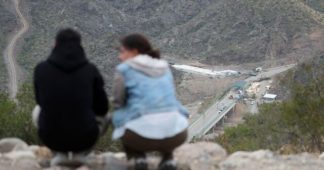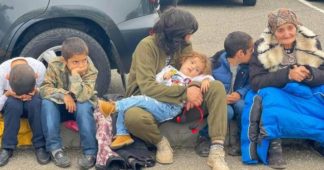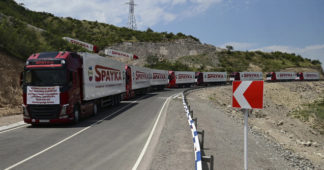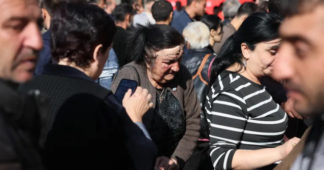By Anthony Deutsch and Stephanie van den Berg
As tens of thousands of ethnic Armenians flee their homes in Nagorno-Karabakh, several international experts say the exodus meets the conditions for the war crime of “deportation or forcible transfer”, or even a crime against humanity.
Nagorno-Karabakh is internationally recognised as part of Azerbaijan but populated mainly by Armenian Christians who set up the self-styled Republic of Artsakh three decades ago after a bloody ethnic conflict as the Soviet Union collapsed.
By Friday, over 90,000 of the estimated population of 120,000 had fled into Armenia, the RIA news agency cited the Yerevan government as saying.
The exodus has evoked the spectre of the 1988-94 war between Armenians and their Azeri neighbours, part of a history of ethnic bloodshed and displacement going back generations that scars the region’s folk memory and has bred deep mutual fear and suspicion.
Hikmet Hajiyev, foreign policy adviser to Azerbaijani President Ilham Aliyev, told journalists in Brussels on Tuesday: “Sometimes in international press … we find certain metaphors that ethnic cleansing is taking place or Azerbaijan is conducting genocide …
“There was no verified fact on the ground of any kind of violence against the local civilians.”
Whatever the history and the lack of independent reports on events inside the isolated territory, several international legal experts believe the mass flight fits the legal definition of a war crime.
The ICC’s founding documents say that, when referring to forcible transfer or deportation, “the term ‘forcibly’ is not restricted to physical force, but may include threat of force or coercion, such as that caused by fear of violence, duress, detention, psychological oppression or abuse of power against such person or persons or another person, or by taking advantage of a coercive environment”.
Such a “coercive environment” was created in Nagorno-Karabakh before the offensive by Azerbaijan’s obstruction of essential supplies, said international lawyer Priya Pillai and Melanie O’Brien, visiting professor at the University of Minnesota and president of the International Association of Genocide Scholars.
We remind our readers that publication of articles on our site does not mean that we agree with what is written. Our policy is to publish anything which we consider of interest, so as to assist our readers in forming their opinions. Sometimes we even publish articles with which we totally disagree, since we believe it is important for our readers to be informed on as wide a spectrum of views as possible.











